From fop to villain: Hugh Grant is the perfect menacing, sneering bad guy
Hugh Grant may have stolen hearts in his early rom-coms but as a delicious villain in many movies, he’s stealing scenes.
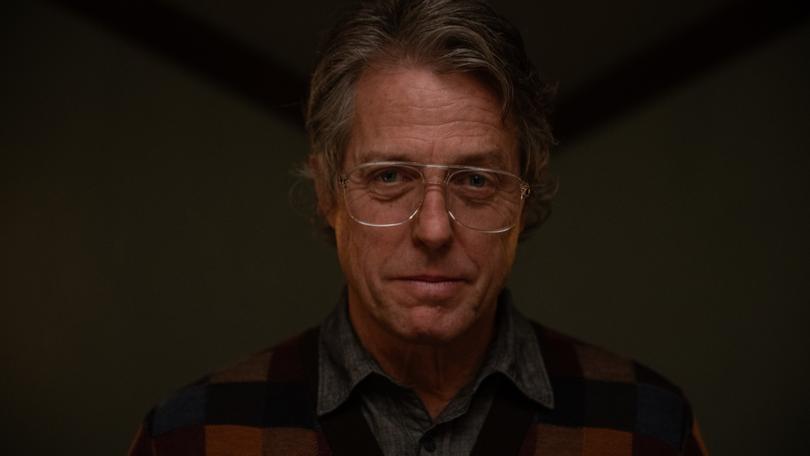
Hugh Grant’s transformation from the foppish, inarticulate romantic ideal to an outright menacing villain was not overnight.
For a decade, the English actor was the go-to guy for any rom-com. His seeming sweetness, his bumbling, non-threatening personality and his baby blues made him the object of many heterosexual women’s desires.
Whether that was as bookseller William in Notting Hill or the always-tardy Charles in Four Weddings and a Funeral, he embodied wholesomeness — even after Grant was caught in Los Angeles with a sex worker in 1995. Cinema audiences didn’t want their bubbles to burst.
Sign up to The Nightly's newsletters.
Get the first look at the digital newspaper, curated daily stories and breaking headlines delivered to your inbox.
By continuing you agree to our Terms and Privacy Policy.Not yet anyway.
Three decades on, the quick-witted and curmudgeonly Grant has well and truly on from those roguish days and revels in playing the monsters that haunt our nightmares.
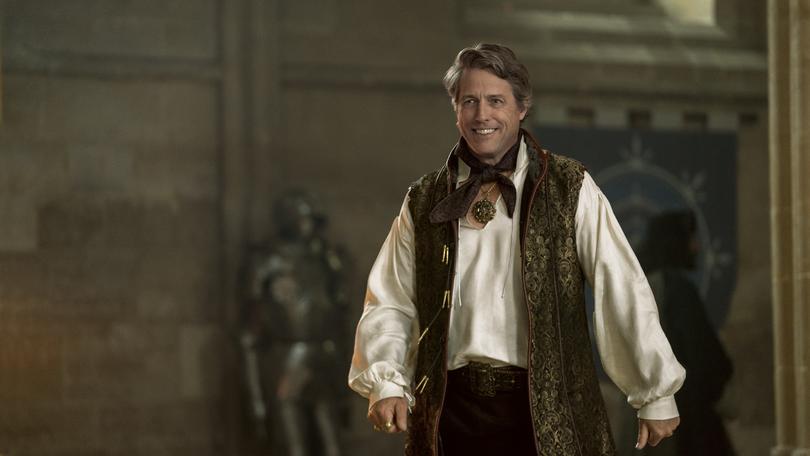
His upcoming horror film Heretic just opened in the US (it will be released in Australia on November 28) may be the climax of all that groundwork. In the movie, by Scott Beck and Bryan Woods — the partners behind the screenplay for A Quiet Place — Grant plays Mr Reed, a reclusive man who invites two Mormon missionaries into his home.
Stepping across that threshold was a fateful decision, as Mr Reed plays a series of mind games to shake the women’s faith in structured religion. He’s not above using violence.
The Grant in Heretic is terrifying but there have been shades of Mr Reed in a raft of his recent performances. It’s his ability to weaponise his earlier reputation as the nice guy that makes his thespian turn to villainy that much more effective.
Grant drew a line through his career with Have You Heard About the Morgans, which he considered to be his last proper rom-com of the old era. After that, he told AP: “These interesting, complex, often not very nice, narcissistic weirdos started to emerge from the woods”.
But it started earlier than that. While his roles in Sense & Sensibility, Nine Months and Mickey Blue Eyes were of upstanding blokes, he was already mixing it up.
Bridget Jones’ Diary’s Daniel Cleaver Helen Fielding’s update of Pride & Prejudice’s George Wickham. He’s a sex pest in the workplace, a philanderer and a liar. Female audiences may have forgiven him, but Daniel is no hero.
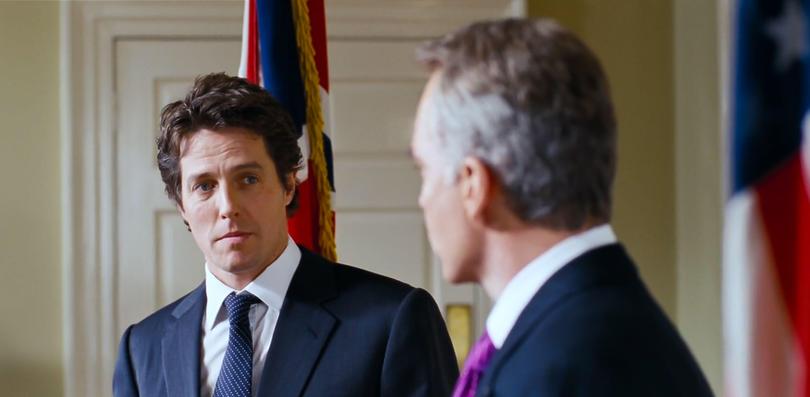
His PM, David, in Love Actually is, canonically, a good guy but the reality is that character was in a position of great power, sexually harassed a subordinate in the workplace and then transferred out of his office when he couldn’t keep his lust in check.
He also jeopardised his country’s relationship with its most crucial ally out of possessive petty jealousy and, at best, recklessness. So many red flags.
When Grant made About a Boy in 2002, there was a lot of noise that he was starting to shed that rom-com lead archetype by playing a selfish man-child who joined a single-parent support group with the express purpose of picking up.
The difference between these roles (Love Actually notwithstanding) and those from the Notting Hill/Four Weddings oeuvre is there was the flash of complexity.
Like many romantic leads who hit a certain age and were not so interested in cosmetic enhancements, Grant went through a fallow period in the early 2000s.
Cloud Atlas in 2014 was a critical and commercial disaster, but it gave Grant the opportunity to stretch his dramatic muscles, portraying several characters — and none of them would’ve even cameoed in a Richard Curtis production.
His St. Clair Bayfield opposite Meryl Streep in Florence Foster Jenkins was a return to the A-list but it was the two projects that followed that marked the start of Hugh Grant 2.0: serious actor and delicious bad guy.
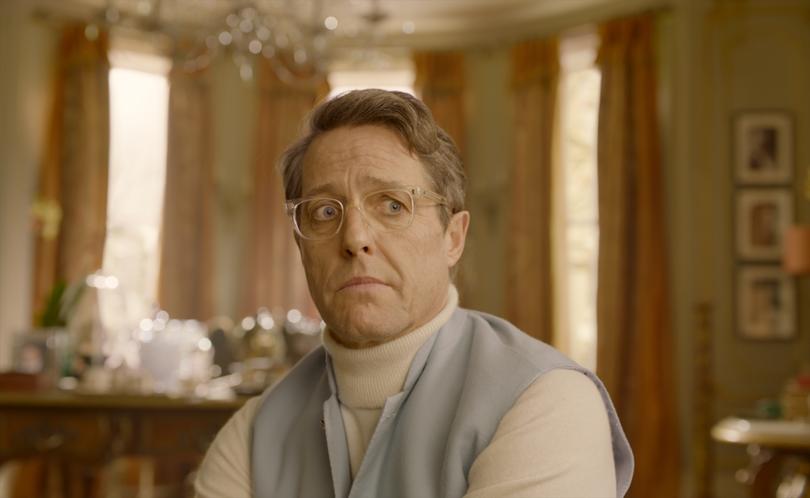
The first was Paddington 2, in which he played Phoenix Buchanan, a delusional theatre actor who frames the lovable bear for theft as he sets out to steal a secret treasure. The performance was camp and brash and there was so much dastardly fun in it. You can tell he was having fun, and that made it joyful for audiences.
The other was the miniseries A Very English Scandal, in which he played historical politician Jeremy Thorpe, whose career ended in scandal when it was revealed he had been in a homosexual relationship with a young lover he conspired to kill. There were no airs or vanity in Grant’s performance.
By then, the audience got it, whether as the sneering, rotten bad guys in Guy Ritchie movies, the scoundrel in Dungeons & Dragons: Honour Among Thieves, or as the murderous husband in The Undoing or the pompous actor in Unfrosted. The transformation was complete.
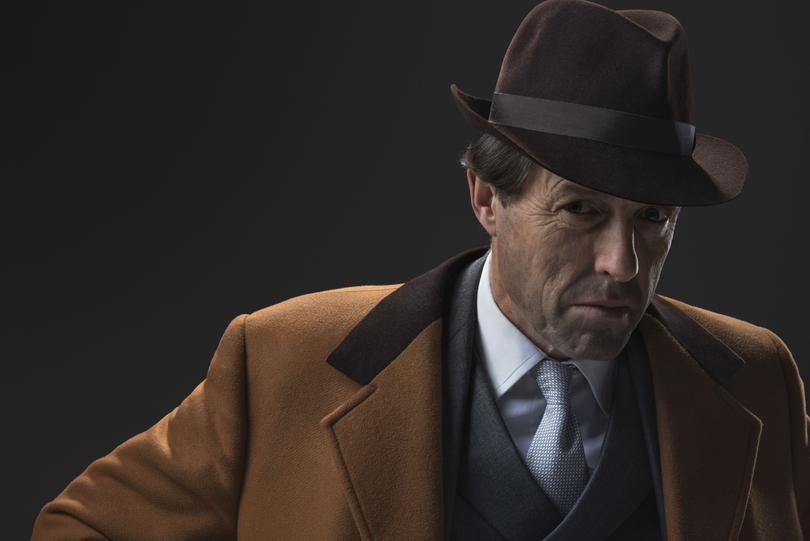
The Grant of now is far more interesting than the simple, often one-dimensional characters he used to play. Even he thinks so.
“It’s easier when you’re creating monsters. I’m fascinated by the bizarre, weird distortions that human beings twist themselves into emotionally, intellectually, physically from the trials and tribulations of life,” Grant told AP.
“I’m not sure that any of my characters in the romantic comedies were sufficiently twisted to fully get my juices flowing.”
Heretic is in cinemas on November 28

